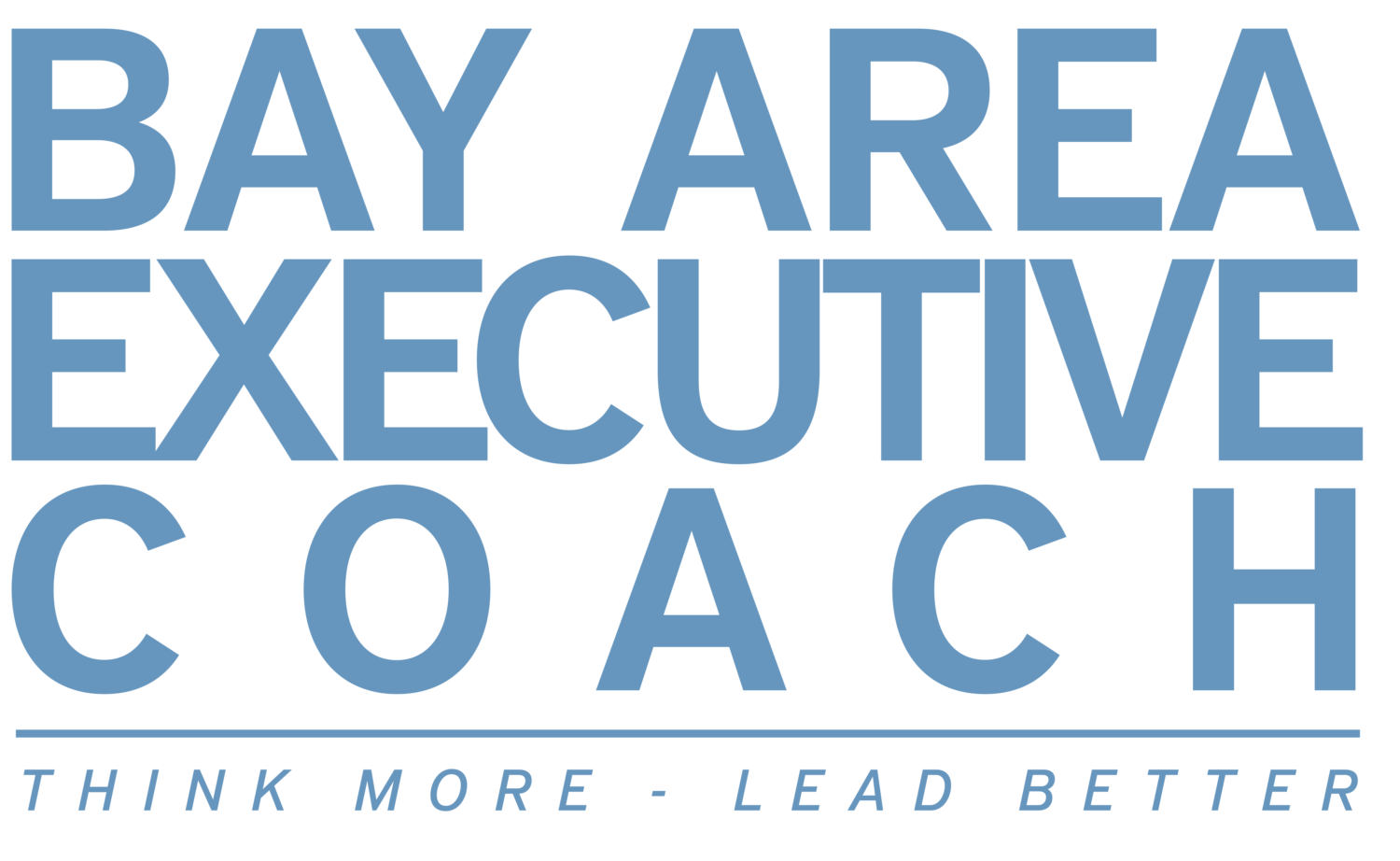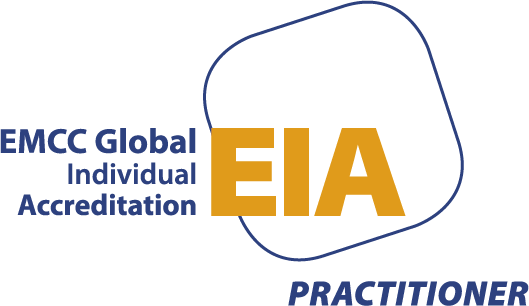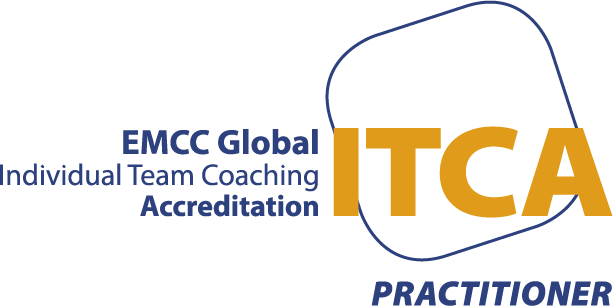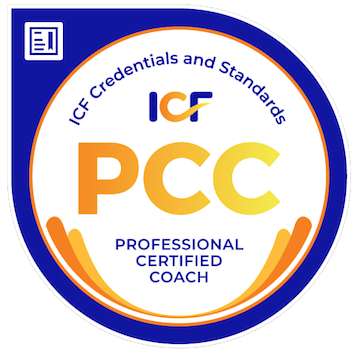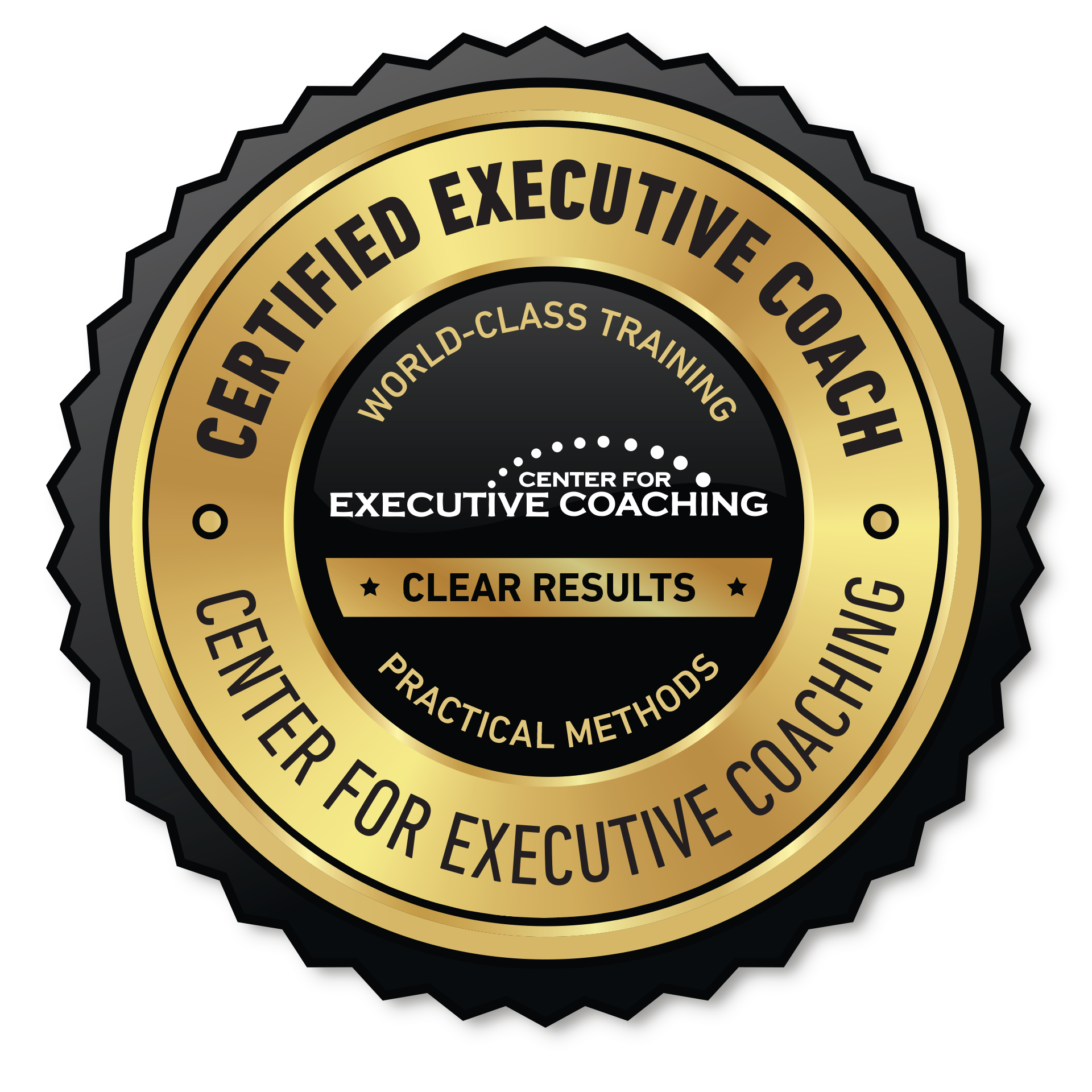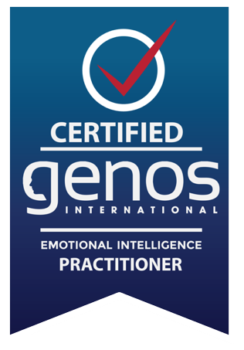What role does executive coaching play in strengthening the decision making and management skills of the “C-Suite:” the company’s top executive team? What benefits do executives derive from having a leadership coach, and how do these benefits affect the thinking and actions that business leaders undertake every day?
To answer these and other questions, let’s first briefly examine the role of the executive coach.
What is Executive Coaching?
Executive coaching is defined by a professional relationship between an executive and a coach. Executive coaches help leaders identify and achieve their goals through reflection, feedback, guidance, thoughtful and provocative conversation and support.
Executive coaches are trained professionals, often with credentials from the ICF or EMCC. In addition, they may hold a certification from accredited professional institutes such as the Center for Executive Coaching. They’ve typically had many hours of specialized training to gain keen insight into the challenges and tribulations faced by top executives.
Executive coaches may also work with leaders in the areas of career planning or personal development, or initiatives such as culture change and succession planning.
Executive coaching services have been a boon to many business leaders, helping them develop and refine the skills that ultimately benefit their companies. It’s a service avidly sought and in high demand. According to data from IBISWorld, the global executive coaching market will exceed $15 billion in 2023. 
Executive Coaching: Some Key Benefits
Executive coaching and executive leadership coaching are powerful methodologies to help leaders achieve goals, develop new skills, and improve their on-the-job performance. Coaching has proven effective in helping leaders deal with stress, conflict, and change, and grow their emotional intelligence. According to a recent Work Trend Index report from Microsoft, emotional intelligence, flexibility and intellectual curiosity are all vital to successful leadership in the age of AI.
Executive coaching also helps resolve people management issues by providing tools for building leadership self-awareness and self-management. Self-aware, confident, and in-control leaders set an example to subordinates who may feel overwhelmed or stressed by their work situation. Such leaders instill in their workforce a higher morale that often directly correlates with lower absenteeism, higher productivity, and, ultimately, higher profits.
Other coaching benefits include improved executive focus, better alignment of key leadership behaviors, candid and ongoing feedback, accountability for appropriate leadership behavior, ego control, and personal support and encouragement.
But perhaps the biggest benefit of executive coaching is the way it helps leaders better engage with their employees on both a professional and personal level. According to the Leadership Coaching Report 2021 by Sounding Board, 67% of the surveyed respondents identified employee engagement as the most significant benefit of executive leadership coaching and training.
Executive Coaching: Engaging with the C-Suite
Once inside a company’s C-Suite, the executive coach often encounters a complex environment marked by distinct personalities and unique business needs. The pros and cons of the company’s culture are often on full display. The effective coach navigates this environment with their own reservoir of flexibility and intellectual curiosity, while engaging with clients in a facilitating rather than teaching capacity. The coach’s prime role is one of helping clients define their individual sets of strengths, weaknesses, and growth areas for becoming better leaders.
C-Suite executives typically have plenty of motivation and drive to succeed. What they sometimes lack though is a heightened sense of emotional intelligence that affects every aspect of how they relate to staff, employees, partners, and the public.
Considering the Role of Emotional Intelligence
It might be useful to quickly review the concept of emotional intelligence and its primary components, since this skill can play a pivotal role in shaping and defining good leaders.
Emotional intelligence can be defined as:

“ . . . the ability to recognize your emotions, understand what they’re telling you, and realize how your emotions affect people around you. It also involves your perception of others and your understanding of how they feel, the sum of which allows you to manage relationships more effectively.”*
*See this article posted on the MindTools site for more detailed information about emotional intelligence.
In other words, your sense of emotional self-awareness serves as an aid to understanding other people’s emotions thereby facilitating your ability to respond with empathy to others’ needs. In this context it’s clear to see why having a high degree of emotional intelligence can be crucial to success in leadership positions.
According to a recent study, one of the key traits lacking in upper management executives is empathy. Executive coaching, with its focus on developing empathy, addresses this key element of successful leadership that’s often lacking.
Other characteristics of the emotionally intelligent leader are:
- Self-Awareness: People with high emotional intelligence are very aware of their own emotions. This awareness leads them to better understand how others perceive them.
- Self-Regulation: Coaching may lead one to possess greater self-control that translates directly into better self-management in one’s professional life. By self-regulating their actions and emotions, executives can reap improvements in the state of their important working relationships with various stakeholders.
- Clearer Thinking: The empathic viewpoint fostered by emotional intelligence can turn a rigid mindset into one that’s open and flexible. By opening up to other points of view, the mind’s ability to think with more focus and clarity evolves. Clear thinking is essential to making sound business decisions.
- Channeled Motivation: A strong inner sense of motivation is a driving force for overcoming the difficult tasks, long hours, and formidable obstacles many executives face. A leader with higher self-awareness and empathy can better channel their intrinsic motivation in the best direction for accomplishing important business goals.
- Better Social Skills: Leaders with high emotional intelligence exhibit refined social skills. They’re typically excellent communicators who come off without sounding domineering or arrogant. They negotiate effectively so all parties feel like they’re in a win-win situation. They’re also effective collaborators and team players, merging their leadership and negotiation skills to accomplish goals.
- Better Leadership Skills: By combining the above mentioned qualities with empathy, emotionally intelligent leaders have a solid tool set for becoming better leaders. Rather than bosses issuing commands, they see themselves first and foremost as empowering and curious leaders who listen intently to what other people are saying.
While engaging with an executive coach offers numerous benefits, nurturing and strengthening emotional intelligence ranks near the top.
The Right Coaching Strategy
The executive coach may therefore initiate their relationship with the executive client by helping that client self-assess their level of emotional intelligence. There are many tools for doing this, among the most widely used are emotional intelligence self-evaluation tests from Genos International.
Later in the coaching engagement, the coach and client can turn their collective attention to specific challenges and issues faced in the C-Suite. The executive coach may also talk through with their client new approaches to building better relationships within their company that foster feelings of mutual support among peers and coworkers.
Alternatively, the coaching may focus on how best to repair or restore a key relationship with a peer, subordinate, or customer. The coach asks questions that probe and challenge the client to define their areas of concern and arrive at their own solution strategies. The coach doesn’t set the agenda so much as help the client define that agenda for themselves. The relationship is not that of student-teacher but ideally one of guiding the client through the process of writing their own game plan.
When working with C-Suite executives, coaches are ever mindful that their clients are already high-achieving people with demonstrated leadership and decision-making skills. The coach’s role is to leverage their clients’’ strengths to become even better leaders, and to challenge and spur their ability to grow and expand into new areas of expertise and achievement.
Executive coaching can also help guide the client in moving decisively towards becoming the leader they ultimately see themselves as. For example, is this leader one who would like to be a more inspirational leader to those they lead? What would that look like? How would that feel to the leader? How would they show up amongst their people as such a leader? These are all questions the coach might explore with the client in such a case.
Executive Coaching: The Impact on C-Suite Executives.
Executive coaching has flourished in recent years for one big reason: C-Suite executives, managers, small business owners, and leaders of all walks of life have discovered it works.
Executive coaching is an excellent and proven way to address the complexities of the C-Suite. It helps executives attune to their strengths and values, identify areas for improvement, learn new skills and become more effective in their leadership roles all in an accelerated fashion. Typical executive coaching engagements last 6 – 8 months. An experienced executive coach will help their client determine which pathways make the most sense based on each person’s passions and motivations. No matter where an executive wants their career trajectory to take them, there’s always something valuable to be gained from engaging with an executive coach.
•••
Thriving as a C-Suite leader can be a defining moment in the career of any professional. If you find yourself at a juncture in your career where you could benefit from the services of an experienced executive coach, contact us to learn more about our range of coaching services.
As a driven and self-motivated leader looking for ways to step up your game, we suggest you read our article on Maximizing Executive Potential: A Guide to Executive Coaching!
Here are more resources related to this topic:
Articles
- How Executive Coaching Services Can Help Your Company
- From Manager to Leader: Executive Coaching for Leadership Development
- Empowering Your Leadership Through Executive Coaching Services
- 9 Top Signs You Need an Emotional Intelligence Coach
- Eight Powerful Benefits of Emotional Intelligence in the Workplace
- How to Build Trust and Connection Through Emotional Intelligence
- Leading with Emotional Intelligence
- Bay Area Executive Coach to Offer Genos International Emotional Intelligence Assessments
Case Studies
- Executive Coaching Helps a Young Leader Garner the Respect and Loyalty of Her Veteran Team
- Empowering a CEO-Designate to Rise to the Challenge
eBook
Guide
YouTube Videos
- What is Executive Coaching?
- Why Executive Coaching is So Powerful!
- 4 Reasons Why You Need to Invest in Your Emotional Intelligence as a Leader
- Leadership Assessment for Emotional Intelligence
Featured photo is from ©Tima Miroshnichenko via Pexels. Secondary photo is from ©Mikhail Nilov via Pexels.
